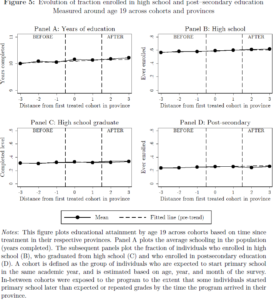Sometimes people argue that one shouldn’t even be allowed to research race and intelligence causes. I’m sometimes asked directly why I choose to study this topic. Well, I could outline a number of reasons, but this would be endlessly quote mined by SJWs as proof of my wicked spirit. Of course, as usually noted, no social policy conclusion follows from any particular empirical fact, but empirical facts together with our personal value judgments do lead to conclusions about some policies being better than others. For instance, if it turned out that vaccines caused late-life cancer, this alone would not necessarily lead us to think we need to stop vaccination. The kind of cancer might be easily curable or very rare, or we might think that the evils vaccines prevent are worse than late life cancer. Still, because I’ve been repeatedly asked why I am interested in this question, here’s a list of relevant publications not from the shut it down perspective. Some people might be surprised to see that Jensen himself wrote at length on the issue in the 1970s.
-
Ingle, D. J. (1967). The need to study biological differences among racial groups: moral issues. Perspectives in biology and medicine, 10(4), 497-499.
- Jensen, A. R. (1970). Can we and should we study race differences? In J. Hellmuth (Ed.), Disadvantaged child, Vol. 3, Compensatory education: A national debate. New York: Brunner/Mazel. Pp. 124—157. [Go to section Are race differences important? ]
- Jensen, A. R. (1973). Educability and Group Differences. Quoted at length in this post.
-
Sesardić, N. (1992). Science and politics: Dangerous liaisons. Journal for General Philosophy of Science, 23(1), 129-151.
- Rushton, J. P., & Jensen, A. R. (2005). Thirty years of research on race differences in cognitive ability. Psychology, public policy, and law, 11(2), 235.
Section 15 of their target articles discusses the policy relevance of these findings. -
Singer, P. (2007). Should We Talk About Race and Intelligence?.
-
Sesardic, N. (2010). Nature, nurture, and politics. Biology & philosophy, 25(3), 433-436.
-
Cofnas, N. (2016). Science Is Not Always “Self-Correcting”. Foundations of Science, 21(3), 477-492.
- Carl, N. (2018). How Stifling Debate Around Race, Genes and IQ Can Do Harm. Evolutionary Psychological Science, 1-9.
- Jeffery, A. J., & Shackelford, T. K. (2018). Moral positions on publishing race differences in intelligence. Journal of Criminal Justice, 59, 132-135.
- Flynn, J. R. (2018). Academic freedom and race: You ought not to believe what you think may be true. Journal of Criminal Justice, 59, 127-131.
The most odd claim is to claim that the question is not important. A symposium in 2011 was organized to determine what the 10 most important questions in social science were, and the list looks like this:
1. How can we induce people to look after their health?
2. How do societies create effective and resilient institutions, such as governments?
3. How can humanity increase its collective wisdom?
4. How do we reduce the ‘skill gap’ between black and white people in America?
5. How can we aggregate information possessed by individuals to make the best decisions?
6. How can we understand the human capacity to create and articulate knowledge?
7. Why do so many female workers still earn less than male workers?
8. How and why does the ‘social’ become ‘biological’?
9. How can we be robust against ‘black swans’ — rare events that have extreme consequences?
10. Why do social processes, in particular civil violence, either persist over time or suddenly change?

